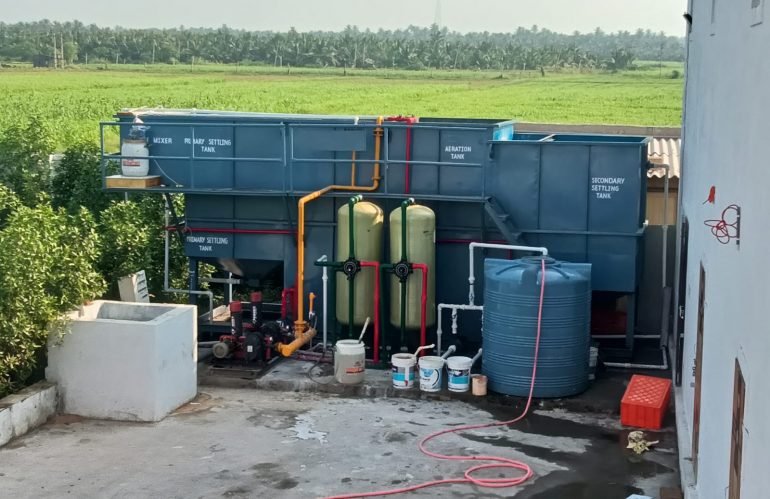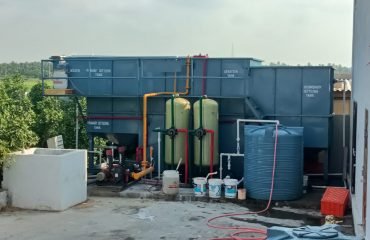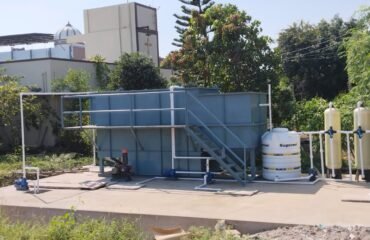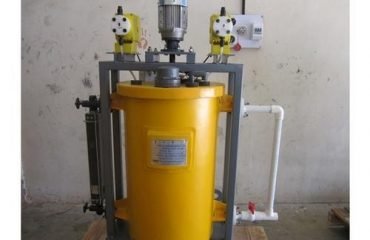In the rapidly urbanizing city of Sonipat, located in the Indian state of Haryana, the importance of a Sewage Treatment Plant (STP) cannot be overstated. As urban areas expand and populations increase, the effective management of wastewater becomes critical to ensure the well-being of both the environment and the city’s residents. In this article, we will explore the significance of sewage treatment in Sonipat and the role it plays in creating a more sustainable future for the city.
Understanding Sonipat’s Wastewater Challenges
Sonipat, like many other urban centers, faces a multitude of challenges related to wastewater management:
Population Growth: The city’s population has been steadily increasing due to factors like urban migration and economic opportunities. As more people settle in Sonipat, the generation of wastewater rises proportionally.
Environmental Impact: Improper disposal of untreated sewage can have severe consequences on the environment. It contaminates water bodies, degrades water quality, and harms aquatic ecosystems, which are crucial for the region’s biodiversity and agriculture.
Health Risks: Untreated sewage poses significant health risks to the population. It can lead to the contamination of groundwater, a primary source of drinking water in Sonipat, potentially causing waterborne diseases and public health crises.
The Vital Role of Sewage Treatment Plants
Efficient Wastewater Treatment: Sewage Treatment Plants are designed to efficiently treat wastewater from residential, commercial, and industrial sources. Through a series of processes, including physical, chemical, and biological treatments, contaminants and impurities are removed, rendering the water safe for discharge or reuse.
Environmental Conservation: Proper sewage treatment substantially reduces the pollution load on water bodies, safeguarding aquatic life and ecosystems. This, in turn, supports agriculture and preserves the local environment.
Public Health Protection: Adequate sewage treatment is a crucial component of public health. It prevents the spread of waterborne diseases, ensuring the well-being of Sonipat’s residents.
Resource Efficiency: Treated wastewater can be reclaimed for non-potable purposes, such as irrigation and industrial processes. This reduces the demand for freshwater resources, promoting sustainability.
Sonipat’s Answer to Sustainable Sewage Treatment
Modern Solutions: Sonipat recognizes the importance of addressing its wastewater challenges with modern solutions. The city has invested in state-of-the-art Sewage Treatment Plants to efficiently manage wastewater.
Customized Approaches: Different parts of Sonipat may have unique sewage treatment requirements. To address this, customized solutions are implemented, ensuring optimal results and minimal environmental impact.
Community Engagement: Public awareness is vital. Sonipat actively engages with local communities to educate them about the significance of sewage treatment and water conservation. Education and awareness campaigns are central to the city’s mission.
In Conclusion
In conclusion, the establishment and efficient operation of Sewage Treatment Plants are indispensable for Sonipat’s sustainable development. As the city grapples with urbanization and population growth, it must prioritize the effective management of wastewater to protect the environment, public health, and vital resources.
Sonipat’s commitment to sustainable sewage treatment is a beacon of hope for a cleaner and healthier future. By embracing the transformative potential of sewage treatment, the city is setting a positive example for urban areas facing similar challenges.






